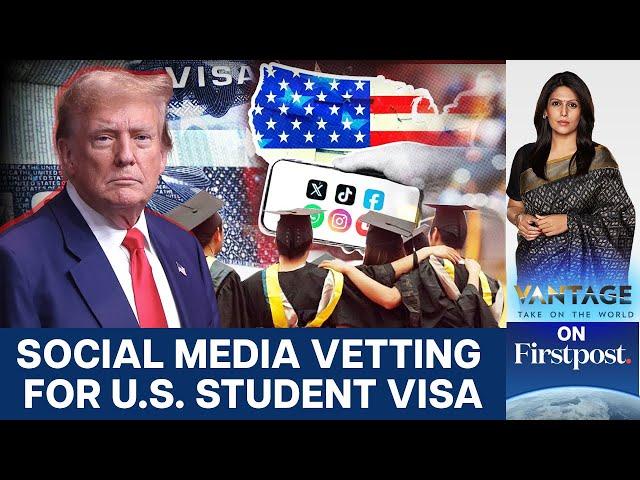The Impact of Social Media on US Student Visa Applications: Essential Insights for International Applicants
Growing Role of Social Media in Visa Application Reviews
In an era where digital connectivity is ubiquitous, social media platforms have become integral to the scrutiny process of US student visa applications. Consular officers increasingly examine applicants’ online activities to verify their identities and assess their intentions. This trend means that both active and dormant social media accounts can influence visa decisions. While a well-maintained digital presence can bolster an applicant’s credibility, a total lack of social media engagement might prompt doubts about transparency and authenticity.
Applicants should consider the following guidelines:
- Develop a professional and positive online persona that reflects academic ambitions and career objectives.
- Be transparent about affiliations and ensure shared content aligns with the ethos of the intended educational institution.
- Understand that having no social media footprint may lead to additional scrutiny during the visa evaluation.
| Type of Social Media Presence | Impact on Visa Assessment |
|---|---|
| Active and Positive Engagement | Builds trust and clarifies applicant’s intentions |
| No Digital Presence | May result in extended background checks |
| Inconsistent or Risky Content | Could cause visa denial |
Why Absence from Social Media Can Raise Concerns
Contrary to common assumptions, not having any social media activity is not necessarily neutral when viewed by visa officers. In fact, the lack of an online presence can be perceived as suspicious. With over 4.7 billion users engaged on social media worldwide in 2024, it is generally expected that applicants will have some digital footprint. A completely silent profile might lead officials to question the applicant’s openness or suspect concealment of pertinent information.
Visa adjudicators may interpret this absence as:
- Verification Difficulties: Challenges in corroborating application details with online data.
- Security Risks: Uncertainty regarding the applicant’s background and motives.
- Limited Insight: Reduced ability to evaluate personality traits and reliability.
| Potential Red Flag | Likely Outcome |
|---|---|
| Discrepancies in Identity | Extended background investigations |
| Unclear Personal History | More intensive interview questioning |
| Suspected Information Hiding | Possible visa delays or denials |
Balancing Privacy and Openness in Your Digital Footprint
International students face the challenge of safeguarding their privacy while providing sufficient transparency to meet visa requirements. Experts in immigration emphasize that while oversharing personal details is discouraged, completely erasing or hiding one’s online presence can be counterproductive. The objective is to craft a consistent and honest digital story that supports the information presented in the visa application.
Best practices include:
- Regularly reviewing and adjusting privacy settings to control who can access sensitive information.
- Deleting or archiving posts that could be misunderstood or raise red flags.
- Maintaining truthful and consistent communication across all public platforms.
- Being cautious about abruptly deleting social media accounts or content, as this may prompt further inquiries.
| Privacy Aspect | Recommended Action | Potential Risk |
|---|---|---|
| Privacy Settings | Restrict profile visibility to trusted individuals | Risk of misinterpretation if too public |
| Content Curation | Remove outdated or controversial posts | Suspicion if content is suddenly erased |
| Digital Activity | Maintain minimal but consistent engagement | May be seen as evasive behavior |
Actionable Advice for Enhancing Your Social Media for Visa Approval
With digital footprints playing an increasingly critical role in visa evaluations, international students should actively manage their social media presence to strengthen their applications. A thoughtfully curated online profile that highlights academic achievements and cultural participation can positively influence visa officers’ impressions.
Recommended tactics include:
- Regularly updating profiles with academic accomplishments, scholarships, and relevant extracurricular involvement.
- Engaging in online communities or groups related to your study area or cultural interests to showcase genuine participation.
- Removing any posts or images that might be misinterpreted or conflict with visa eligibility standards.
- Ensuring all publicly accessible information is consistent with the details provided in your visa application to avoid discrepancies.
| Strategy | Benefit |
|---|---|
| Profile Maintenance | Boosts applicant’s credibility |
| Active Engagement | Shows cultural adaptability and sincere interest |
| Content Monitoring | Reduces chances of negative perceptions |
| Information Alignment | Prevents suspicion and processing delays |
Final Thoughts: Mastering the Digital Aspect of Your Visa Journey
As social media continues to influence immigration decisions, international students must be mindful of their online presence. Experts from Fragomen highlight that both an overly silent or problematic digital footprint can complicate visa approvals. Therefore, cultivating a balanced, transparent, and professional social media profile is crucial for those aiming to study in the United States. Staying updated on these evolving standards and managing your digital identity with care can greatly improve your chances of securing a student visa.




